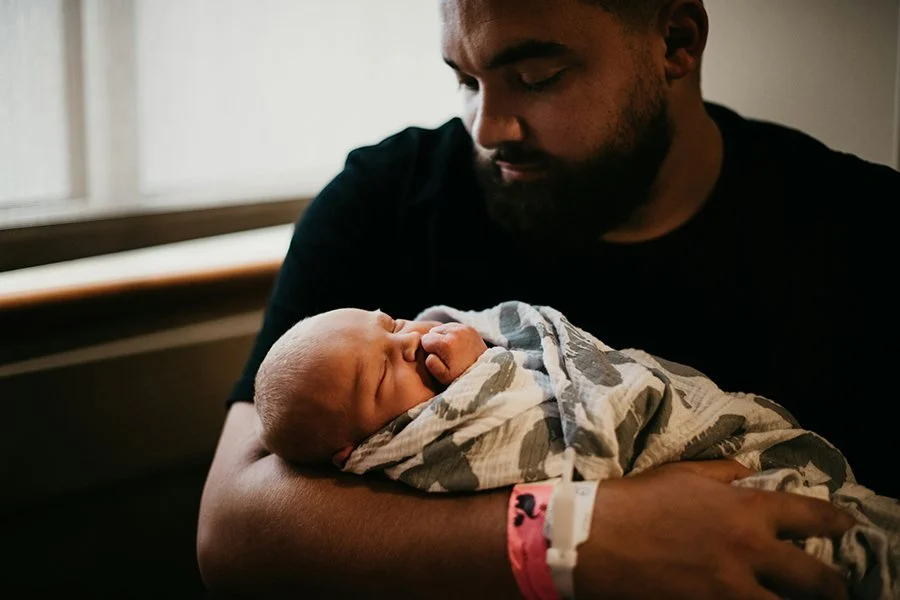Self-compassion Helps New Dads Bond With Their Babies
Photo by Tim Mossholder
An article in the online Greater Good Magazine looks at new research findings that self-compassion and mindfulness can help new fathers stay well and bond with their babies.
The June 11th article by Maryam Abdullah reviews findings of several research studies on paternal mental health during the transition to parenthood.
A recent Dutch study of 70 expecting fathers in their 20s to 40s (Noor de Waal et al) explored risk factors and resilience factors for how expecting fathers can bond with their babies. The findings were that:
Expecting fathers who had fewer symptoms of depression, anxiety, stress, and repetitive negative thinking tended to have stronger feelings of bonding with their baby. Moreover, expecting fathers who were more self-compassionate and non-judgmentally mindful tended to feel a stronger bond with their baby.
The researchers also found that fathers who had less repetitive negative thinking, and who felt more self-compassion and non-judgmental mindfulness, tended to have less stress and did in turn feel a stronger bond with their baby.
Another recent study (Daniel van Heerden et al) found “that fathers of preschoolers through adolescents in Australia and the United States who were more self-compassionate tended to be able to navigate their emotions better - and they felt less lonely, depressed, and anxious. What’s more, they tended to feel closer and have fewer conflicts with their children.”
The researchers concluded:
As self-compassion helps to enhance the capacity for parents to respond adaptively and non-critically to the inevitable difficulties caring for their children, an absence of self-compassion may understandably trigger a parental response that gives rise to increased conflict. For example, high levels of self-criticism can lead some parents to adopt harsher and more critical attitudes toward their children. Additionally, low self-compassion constrains the ability to experience empathy for others, perhaps leading to difficulty empathizing with their child’s needs which may further increase conflict.
A 2016 study (Caterina Medeiros et al) in Portugal “found that fathers who practiced more mindful parenting tended to have children who felt more securely attached to them; and those children … felt greater well-being”.
“Parents reporting higher levels of mindful parenting are more present in the parent-child interactions, and as a result, they tend to adopt a less reactive posture and to be more attentive, available, and consistently responsive to their child’s needs,” explain the researchers. “Furthermore, they tend to be more caring and compassionate toward their children.”
The article notes that self-compassion and mindfulness are skills that can be practised and developed. The article offers links to sample tools such as:
self-compassion meditations
guided self-compassion meditation for parents. (10 minutes)
self-compassion for children
Mindful breathing. (5 minutes)
Parenting with mindfulness
